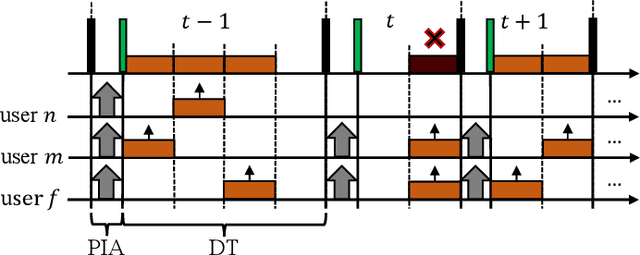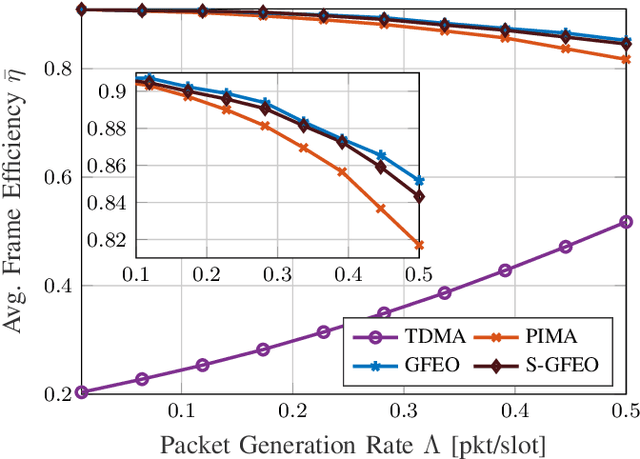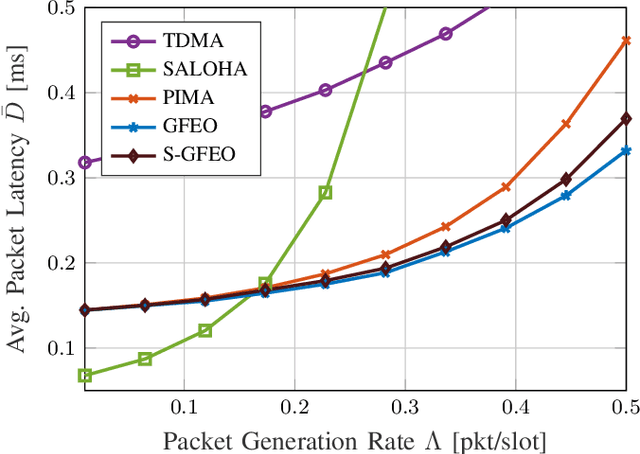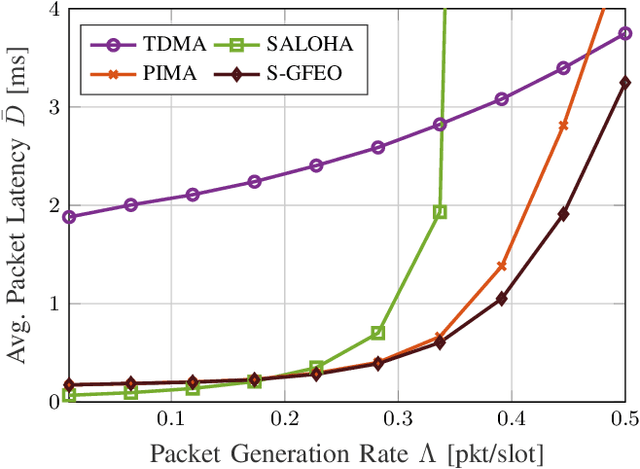Minimum-Latency Scheduling For Partial-Information Multiple Access Schemes
Paper and Code
Aug 04, 2023



Partial-information multiple access (PIMA) is an orthogonal multiple access (OMA) uplink scheme where time is divided into frames, each composed of two parts. The first part is used to count the number of users with packets to transmit, while the second has a variable number of allocated slots, each assigned to multiple users to uplink data transmission. We investigate the case of correlated user activations, wherein the correlation is due to the retransmissions of the collided packets, modeling PIMA as a partially observable-Markov decision process. The assignment of users to slots is optimized based on the knowledge of both the number of active users and past successful transmissions and collisions. The scheduling turns out to be a mixed integer nonlinear programming problem, with a complexity exponentially growing with the number of users. Thus, sub-optimal greedy solutions are proposed and evaluated. Our solutions show substantial performance improvements with respect to both traditional OMA schemes and conventional PIMA.
 Add to Chrome
Add to Chrome Add to Firefox
Add to Firefox Add to Edge
Add to Edge